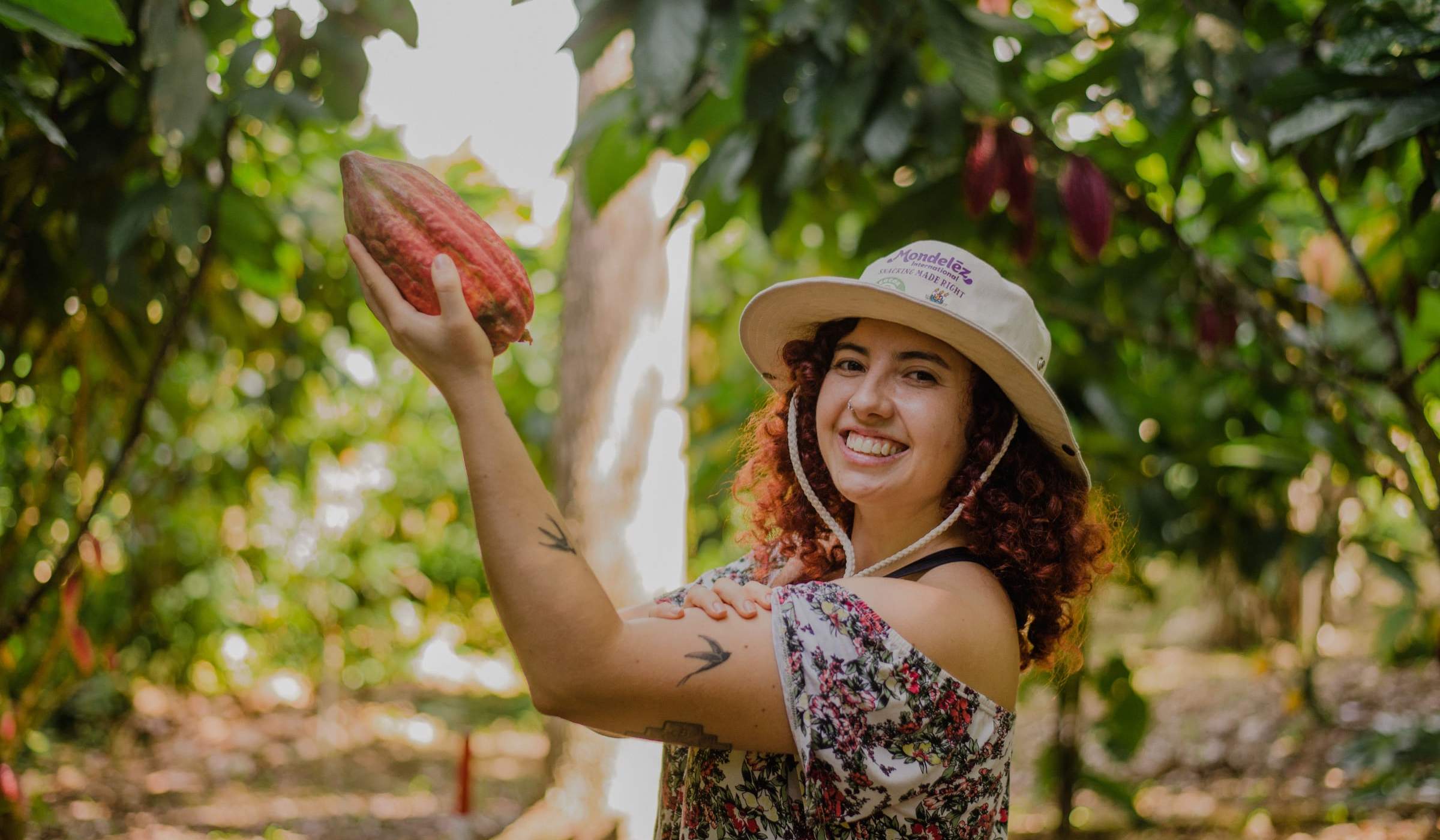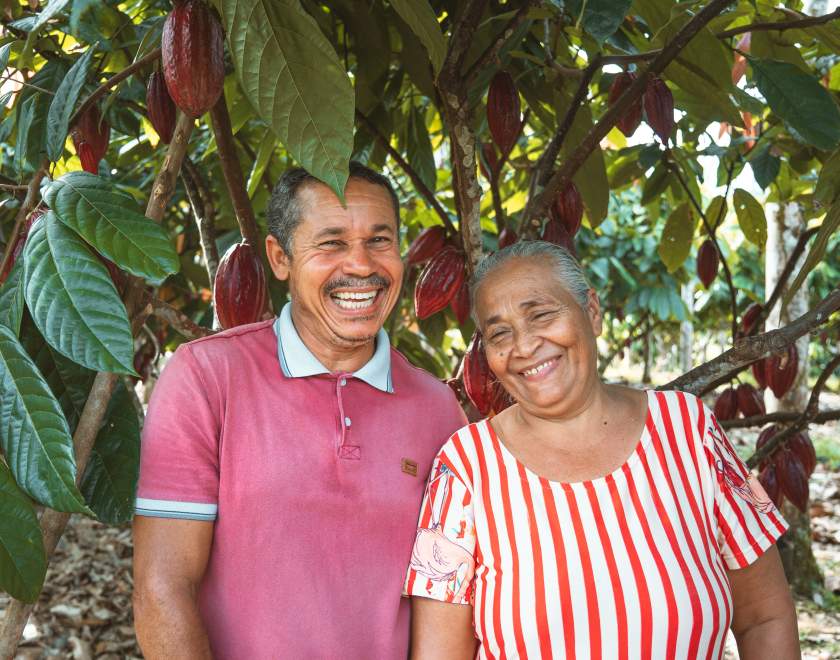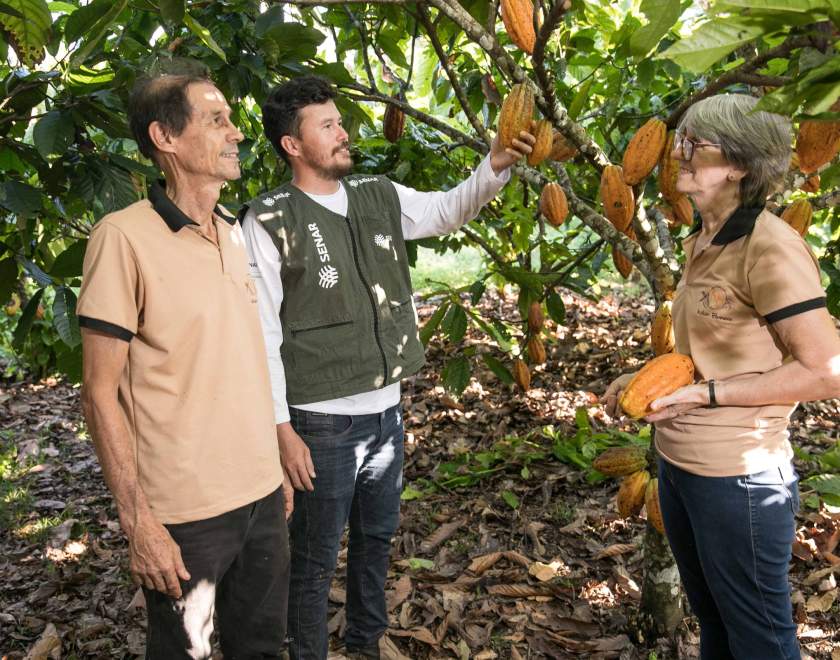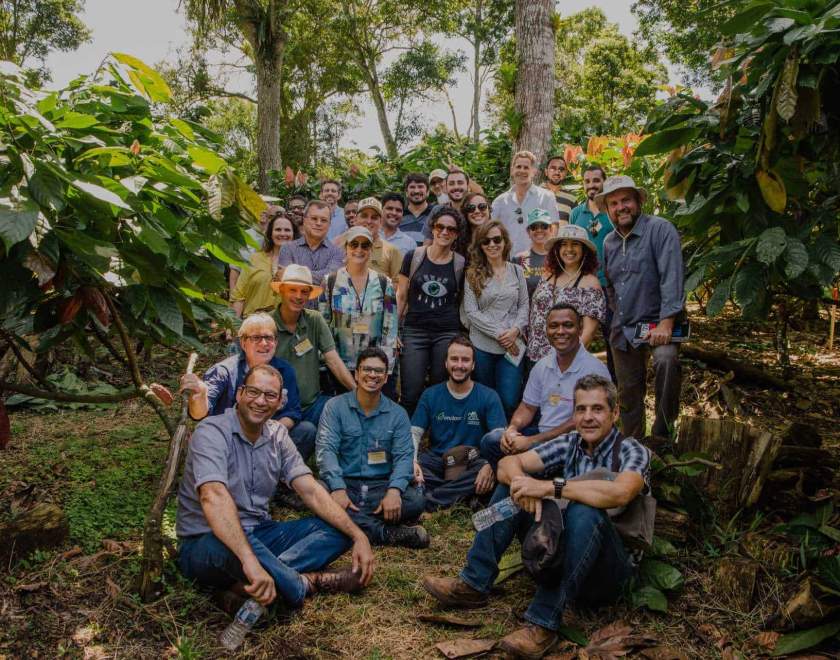
CocoaAction officially launched in Brazil in 2018. Although cocoa is not among the prime agricultural commodities produced by Brazil, it is still an important crop that generates income for thousands of small farmers, including native and traditional communities. Cocoa production is also a driver of conservation and reforestation, helping to recover pastures and degraded areas.
There are approximately 93,000 cocoa growers scattered across Brazil, especially in Bahia and Pará (the latter in the Amazon region), the main cocoa producing states. According to AIPC (Cocoa Processing Industry National Association), the industry bought roughly 200,000 tons of cocoa in 2021. This year over 138,000 tons have been purchased from January to August 2022.
Cocoa fosters the national industry and generates thousands of jobs: leading cocoa grinders such as Barry Callebaut, Cargill and ofi are in Brazil, as well as traditional chocolate-makers Harald, Mars, Mondelez, Nestlé, and Dengo.*
Brazil is a unique market because the entire cocoa chain is present in the country, from production to industry to consumption.
According to ABICAB (Brazilian Association of the Chocolate, Peanut and Confectionery Industries), around 201,000 tons of chocolate were produced in the first trimester of 2022, a growth of 6% compared to the same period in 2021. Brazil is the world’s fifth largest chocolate producing and consuming country – only behind the USA, Germany, Russia and the United Kingdom. Brazilians love chocolate!
Since its initial days, the CocoaAction Brasil initiative proposed precompetitive work based on collective efforts and dialogue. The goal has been to gather the private and public sectors and civil society, to join forces to advance several sustainability fronts with a focus on the cocoa grower.
From 2018 to 2022, much work has been developed in Brazil together with members and partners, generating positive impact for the entire cocoa sector. For instance, credit accessed by small cocoa growers (Pronaf line) increased 240% -- from R$ 19.7 million to R$ 67 million -- from 2017 to 2021, whereas the number of cocoa farmers reached by SENAR’s technical assistance went from only 300 (in 2018) to 3,800 people in Bahia, Pará, Rondônia and Espírito Santo states in 2022. Cocoa and its agenda have become a priority for several entities such as CNA (Brazil’s Agriculture and Livestock Confederation).
Some of these achievements and progress can be seen in Cocoa Chain Advances in Brazil with Collective Efforts.
We take this opportunity to once again thank all of our members, governance and partners, and count on your support and collaboration so that we can further advance sustainability in the Brazilian cocoa chain in the years to come.
* Note: all of the companies mentioned are CocoaAction Brasil members.


